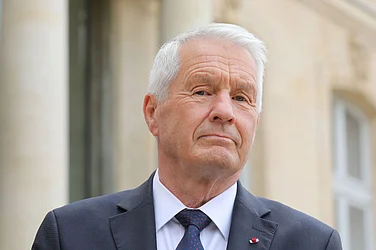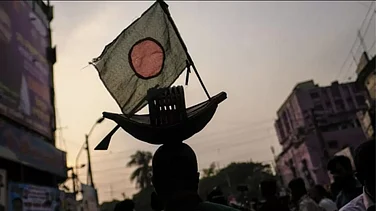US Secretary of State Antony Blinken is visiting Thailand as the Biden administration moves to show its commitment to Southeast Asia in the face of a relentless push for influence in the region from China. Blinken was meeting with senior Thai officials and democracy activists from neighbouring Myanmar on Sunday in Bangkok. He signed an agreement with Thai Foreign Minister Don Pramudwinai expanding the US-Thailand “Strategic Alliance and Partnership.”
Blinken came to Thailand after attending an international conference in Bali, Indonesia, where he also raised concerns about China's increasing assertiveness in talks with Chinese Foreign Minister Wang Yi.
Like its predecessors, the Biden administration has watched China's rapid growth warily and sought to hold it to international standards without significant success. Blinken said Saturday that China's support for Russia in its war in Ukraine poses a threat to the rules-based order and complicates already tense relations between Washington and Beijing.
But China's aggressive push into its Southeast Asian neighbors and maintaining a robust regional U.S. presence are at the top of Blinken's agenda in Thailand, according to American officials. They also say Blinken will offer support and encouragement to Myanmar dissidents who have been forced to flee the country since the military seized power from the elected government on Feb. 1, 2021.
The U.S. and like-minded democracies are trying to discourage developing Southeast Asian countries from entering large-scale infrastructure and development projects with China unless they are proven economically feasible, structurally sound and environmentally safe.
“What we're about is not asking countries to choose but giving them a choice when it comes to things like investment and infrastructure, development assistance, et cetera,” Blinken said in Bali.
“There is on one level plenty of room for everyone to do that because the needs are immense,” he said. “But what we want to make sure is that we're engaged in a race to the top — that is, we do things to the highest standards — not a race to the bottom where we do things to the lowest standards.”
US officials from multiple administrations have criticized China for exploiting smaller nations by luring them into unfair or deceptive agreements.
“My hope would be that if, as China continues to engage itself in all of these efforts that it engages in a race to the top, that it raise its game,” Blinken said. “That would actually benefit everyone.”





















